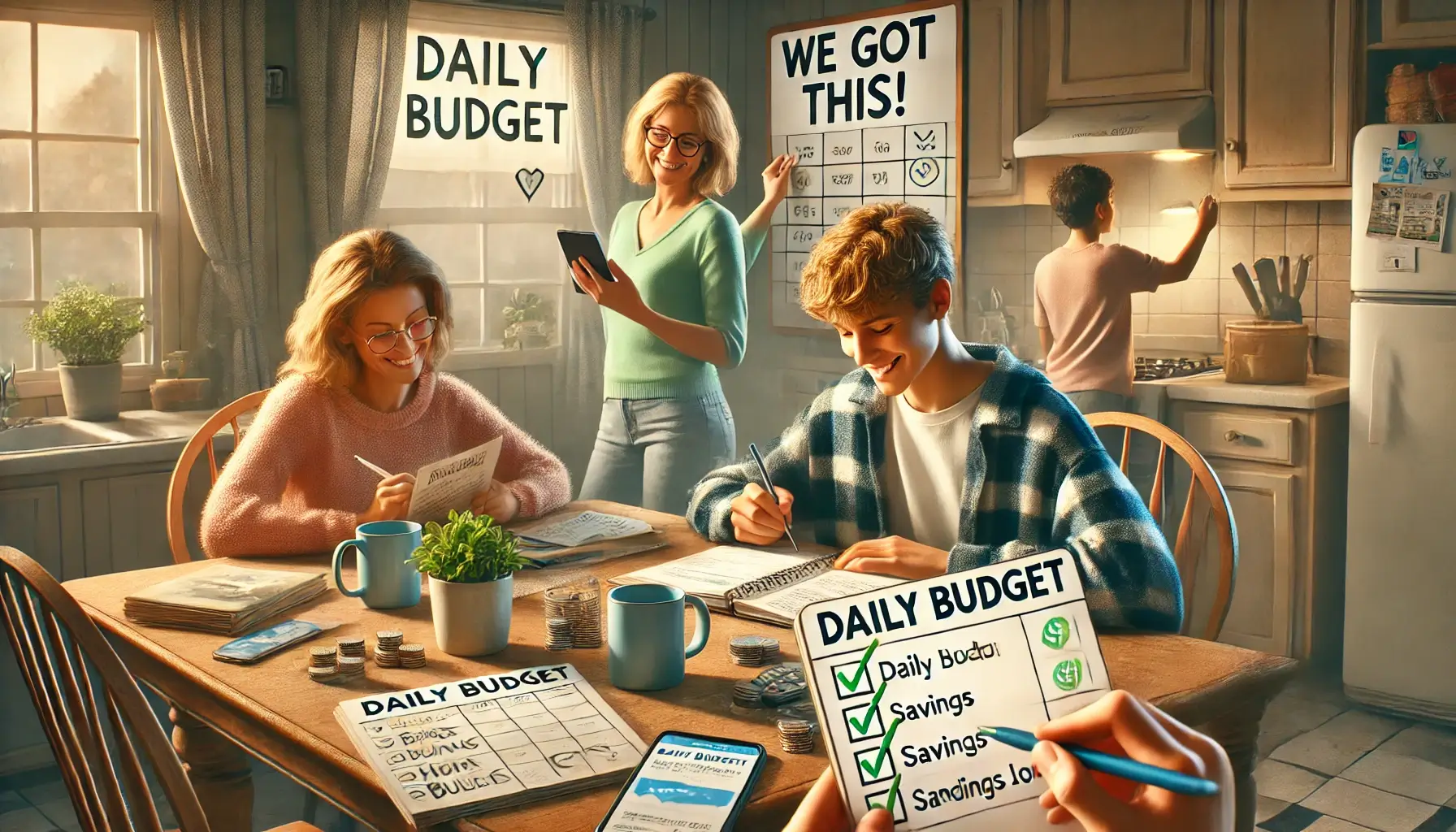Financial confidence doesn’t come from a big salary or a perfect credit score. It’s built — little by little — in your daily decisions, habits, and mindset.
The more consistent and intentional you are with your budget, the more confident you’ll feel managing your money, making financial choices, and planning your family’s future.
Here’s how to use everyday budgeting to strengthen your financial confidence — and feel more in control than ever before.
1. Start Where You Are — Not Where You Wish You Were
Confidence starts with acceptance and awareness.
Do this:
- Look at your current income and expenses honestly
- Acknowledge past mistakes without judgment
- Commit to progress — not perfection
You don’t need to be an expert to start. You just need to show up.
2. Track Your Spending Daily or Weekly
The simple act of tracking gives you power and clarity.
Why it builds confidence:
- You know exactly where your money goes
- You catch small leaks before they become problems
- You feel more in control, even if numbers are tight
Use a notebook, app, or spreadsheet — whatever fits your routine.
3. Celebrate Small Wins Consistently
Confidence grows every time you follow through on a financial goal.
Celebrate when you:
- Stick to your grocery budget
- Avoid an impulse buy
- Add money to savings
- Pay a bill on time
Positive reinforcement builds belief in your ability.
4. Practice “Micro-Decisions” with Money
Big choices are built on small ones.
Examples:
- Choosing to eat at home tonight
- Putting $5 in savings instead of spending it
- Saying “not right now” to a non-essential purchase
- Checking your balance before you swipe
Every smart decision adds to your financial identity.
5. Set Clear, Achievable Goals
Confidence thrives when you have a direction — and see yourself making progress.
Start with 1 or 2 short-term goals like:
- Save $100 this month
- Pay off a credit card in 3 months
- Stick to your budget for 30 days
- Track every expense for one week
Big goals come later. Start small — build trust in yourself.
6. Learn As You Go (No Pressure)
Confidence doesn’t come from knowing everything — it comes from learning on purpose.
Try this:
- Read or watch one financial video per week
- Follow one personal finance blog or YouTube channel
- Talk to someone who’s financially wise
- Google terms you don’t understand
Each new insight makes you stronger.
7. Use Tools That Empower You
The right tools make budgeting easier — and easier means more consistent.
Look for:
- Budgeting apps that match your style
- Visual trackers like charts or whiteboards
- Automated savings tools
- Family-friendly tools for group motivation
Use whatever keeps you engaged and motivated.
8. Be Honest About Setbacks — Then Move Forward
Confident people don’t pretend things are perfect. They face reality and adjust.
When a setback happens:
- Reflect (What happened? What can I learn?)
- Recalibrate (What do I need to change?)
- Reset (What’s my next step?)
Every recovery builds strength — and resilience.
9. Share and Discuss Your Progress
Talking about your money goals helps normalize financial growth — and makes you accountable.
Ways to share:
- Discuss goals with your partner weekly
- Create a monthly “check-in” with your family
- Talk openly with a friend about budgeting progress
- Celebrate milestones together
Money is less stressful when it’s shared — and support builds confidence.
10. Recognize That You’re in Control
Confidence is built on the belief that you can handle what comes next.
Your budget is more than numbers — it’s your strategy, your plan, your proof that you are taking charge.
Even if things aren’t perfect now — you’re doing something about it. And that’s powerful.
Final Thoughts: Confidence Comes from Consistency
Every time you sit down to review your budget, make a smart choice, or stick to a plan — you’re proving to yourself that you’re capable.
Over time, these little actions become habits. Habits become systems. And systems create freedom.
Budgeting isn’t just about saving money — it’s about building a stronger, more confident version of yourself.

